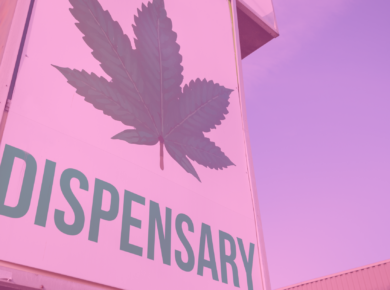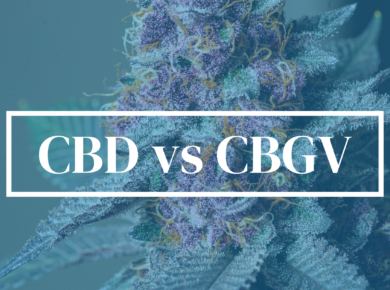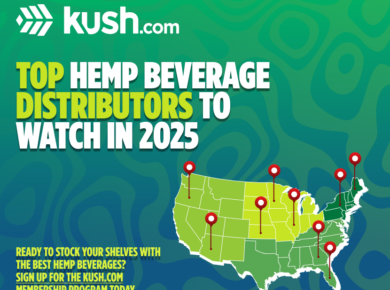Transporting Hemp Biomass Between States
With the passage of the Farm Bill of 2018, we are entering a new era of industrial hemp and a hemp-derived CBD market. However, the current legal gray area that has persisted since its passage means that hemp producers are left with more questions than answers. This has never been more true than when it comes to the issue of legally transporting hemp, particularly across state lines. So how do you legally transport industrial hemp between states? Spoiler alert: you can’t, at least not yet.

Looking to buy or sell wholesale hemp? Create a FREE account on Kush now >>
Lack of Federal Guidance
Transporting hemp, or any product containing CBD or THC, has always been tricky. Transporting it across state lines is even trickier, walking a fine line between state-legal and federally illegal. The Farm Bill of 2018 was written to help define a legal gray area, and establish rules and regulations for hemp producers, and ease the cultivation and distribution of industrial hemp, even between states.
The way the Farm Bill was written, all states must allow the transportation of industrial hemp across state lines, so long as it was cultivated and produced in accordance with the federal law. Section 10113 of the Farm Bill stipulates that the US Department of Agriculture must provide regulations and approve states for hemp production, cultivation, and inevitably, transportation. However, the regulations have not been outlined yet, no states have been approved. Hemp currently being produced still exists under the 2014 Farm Bill, a very similar piece of legislation, minus a few crucial details, including transportation. This means that all industrial hemp still sits in a legal grey area, with no protection during interstate travel.
Do you know which states have submitted regulations to the USDA?
Clashing Laws Between States
Currently, 41 states have legalized industrial hemp to a certain degree. Each state has their own specific set of rules and regulations, and the US will remain a patchwork of varying hemp rules until the government takes the time to outline guidance. And in the meantime, the lack of regulation has been wreaking havoc on the hemp industry.
Find wholesale hemp produtcts now >>
In January of 2019, an Oregon man operating a commercial semi-truck was pulled by Idaho State Police in Boise. Denis Palamarchuk was transporting 6,700 pounds of legal industrial hemp destined for Big Sky Scientific in Aurora, Colorado. The hemp tested positive for the presence of THC, and the driver, Denis Palamarchuck, was arrested and charged with felony trafficking of marijuana. While hemp is known to contain trace amounts of THC, they are two different substances under federal law. Idaho law, however, makes no exceptions for hemp, and in fact, is known to have some of the strictest laws on cannabis and hemp in the country.
Another recent incident put a spotlight on the struggles of hemp transportation. Patriot Shield National Transport, a hemp transportation company, was transporting 18,000 pounds of legal Kentucky hemp headed for Panacea Life Services in Louisville, Colorado, when they were pulled over in Pawhuska, Oklahoma, allegedly for running a red light. Four men accompanying the cargo were arrested and are now facing serious drug crimes.

What is the Solution?
There are 41 states that consider industrial hemp and hemp products to be legal. Even in stricter states like Idaho and Oklahoma, hemp products are legally sold in stores (as long as they test negative for THC). But with an assortment of state regulations that vary from one jurisdiction to the next, it is impossible to guarantee safe passage from state-to-state without some amount of risk for drivers and transportation vehicles carrying industrial hemp. One suggestion would be to stick to roads through states that have an industrial hemp program. For example, when transporting hemp from Oregon to Colorado, don’t drive through Idaho.
Recently, the USDA took a step towards creating regulations by holding a meeting with industrial stakeholders. In this meeting, stakeholders were invited to submit their own regulatory suggestions based on the state-level guidelines. The states that are making the most progress in establishing regulations are states that have maintained successful hemp cultivation pilot programs in recent years, including Pennsylvania, Kentucky, Kansas, Wisconsin, Tennessee, Missouri, North Dakota, as well as a handful of indigenous tribes.
However, no matter how much progress we make at a state-level when it comes to distribution and transportation, the most overarching solution can ultimately only come in the form of comprehensive guidance and regulations established by the federal government.





